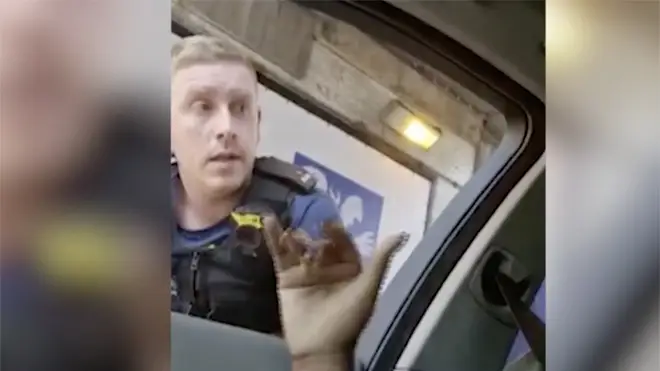
Nick Abbot 10pm - 1am
23 August 2020, 11:50

Met Police Federation chair says bodycam footage should always be published
The chairman of the Metropolitan Police Federation has said that officers’ body worn camera footage should be made available as soon as possible after an incident has taken place to ensure transparency.
Ken Marsh said that clips should be released as a matter of priority so that people cannot edit footage and do “whatever they want with it”.
His remarks come after Labour MP Dawn Butler posted video of her being stopped by police as a passenger in a car in London, accusing officers of racially profiling her.
Mr Marsh told LBC today that body-worn camera is “transparent in the way it’s recorded, the way it’s recognised, the way it’s controlled and held.”
He said he wanted it to be released as soon as possible after any incidents to stop anyone else involved taking over the narrative of a situation in order to possibly paint police in a negative light.
“When you are talking about the MP you’ve just been talking about [Dawn Butler] she can put on or put out whatever she wants. They can do whatever they want with it.
“I don’t want to see that from my colleagues because it becomes a tit-for-tat and the same conversation could be had about our colleagues.
“At the moment their body-worn cameras have complete transparency. Once it’s clipped on, that’s it. It captures everything that goes on throughout the day.
“I want that to be available.”
Mr Marsh used the example of officers’ footage in America where clips are made available immediately for public viewing in the overwhelming majority of cases.
The leader of the National Black Police Association said this week that the incident with Ms Butler was "rooted in a biased system that views black people as criminals or drug dealers".
But Che Donald, the Police Federation's national vice-chair, said body-camera footage of the incident had shown the officers who initiated the stop were "professional and courteous".
He wrote in The Daily Telegraph: "However, because of the nature of the stop, the profile of the occupant and the media coverage, the focus of debate has been on the officers, rather than on whether the incident itself was legitimate, proportionate and without prejudice or bias.

"When we start to review incidents in this way, seeking to further the proposition that the police are guilty of racial profiling or institutional racism, it is inevitable that personal interpretations will play a role, whether they are supported by the evidence or not."
Mr Donald, who wrote he identifies as mixed race and experienced racism growing up in South Africa, added: "I do not personally take the view that policing is institutionally racist, yet I do believe that we should do far more to address the policies and procedures which create the perception that it is."